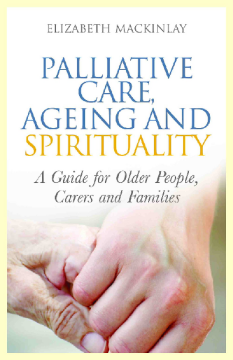
Additional Information
Book Details
Abstract
This sensitive and compassionate book provides older people who are nearing the end of life and their loved ones, as well as the professionals who work with them, with a greater depth of understanding of spiritual issues surrounding death and dying.
Illustrated with the experiences of many older people, it explores important themes such as grief and loss; fear; pain, distress and suffering; acceptance; transcendence; prayer; the healing of relationships; and intimacy, and shows that the final journey towards death can be one of the most spiritually meaningful times in the life of an older person - a time in which there is still hope, and in which the person who is dying and their loved ones can grow spiritually, strengthened by the difficult times they face together. Spiritual issues for older people with dementia who are nearing the end of life are also explored, as are ethical and moral issues in death and dying, and the ways in which bereaved partners and relatives may come to terms with the loss of a loved one.
This concise and accessible book will be a valuable resource for those in the caring professions and a rich source of guidance and support for older people who are nearing the end of life and their families.
this is a book which anyone involved in this area could read with real profit - and pass on to others. Strongly recommended.
Plus
In a culture that tends to assume that the only meanings that can be associated with death are profoundly negative, the idea of a good death for elderly people is not always apparent. Elizabeth MacKinlay sees things differently. In this book she teases out a different way of looking at and understanding death and dying. Death is not an enemy or even something that necessarily has to be feared. Rather, death is a meaningful movement towards a positive goal. Religion and spirituality are vital aspects for the achievement of such a goal. This book helps us all to see death and dying differently and in seeing these things differently, we can learn to practise more compassionately.
Professor John Swinton, Chair in Divinity and Religious Studies and Professor in Practical Theology and Pastoral Care, University of Aberdeen, Scotland
The phrase 'a good death' seems ridiculous, but what is really meant is a good approach to death, with minimal physical pain, and the best chance of mental and spiritual calm to face the end. Not an easy task and therefore a book such as this containing helpful advice and real examples can be a useful aid to not only professionals perhaps facing palliative care for the first time, but also to families and friends who can have much to offer in bringing comfort and ease... This book, by being non-technical is also of value to the relatives and friends of those approaching the end of their mortal life.
GoodBookStall.org.uk
...both of these books (Spirituality and Personhood in Dementia by Albert Jewell and Palliative Care, Ageing and Spirituality by Elizabeth Mackinlay), (...) are infused with glimpse of grace and courage, can inspire the reader to give thanks and cherish all that is good, and to live life as fully as we are able, even in the midst of frailty.
The Way
(...) this book provides a gentle but emotive introduction into preparing for the final journey of life.
Journal of Community Nursing
Elizabeth MacKinlay is a registered nurse and an Anglican priest. She is Director of the Centre for Ageing and Pastoral Studies at St Mark's National Theological Centre, Canberra, Australia, and a Professor in the School of Theology at Charles Sturt University, Australia. She was Chair of the ACT Ministerial Advisory Council on Ageing 2002-2008 and was the ACT Senior Australian of the Year for 2009. Elizabeth is the editor of Ageing and Spirituality across Faiths and Cultures and Ageing, Disability and Spirituality and the author of Spiritual Growth and Care in the Fourth Age of Life and The Spiritual Dimension of Ageing, all published by JKP.
MacKinlay's skills as a nurse and priest are reflected in the simple and compassionate opening up of the questions and some of the consequent feelings that surround this important dimension of our living.
Church Times
